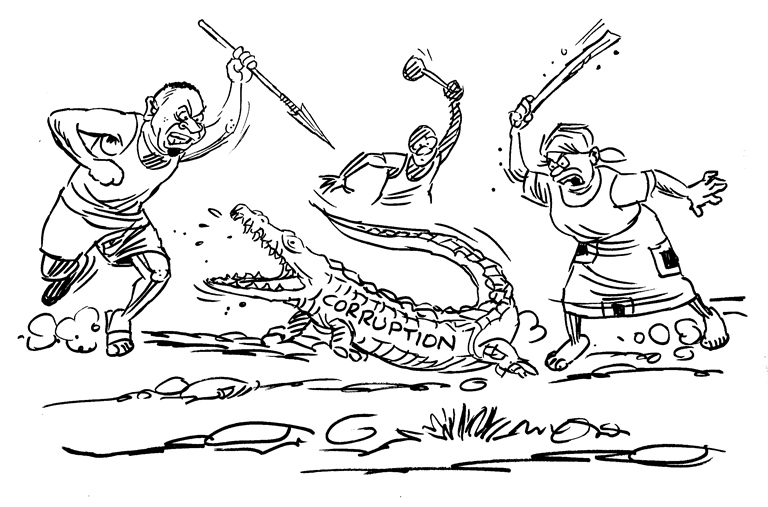‘Don’t look a gift horse in the mouth’
Let me begin by paying homage to my elder Jeff Kabondo, the creator of Musings on Corruption. Jeff is the chairperson of the National Integrity Committee (NIC).
Jeff and NIC have gifted me the chance to play gap filler as Jeff enjoys his sabbatical from the column. Jeff’s shoes are too big for me to fill. I will, therefore, not subject myself to the pressure of attempting to fit in his shoes.
Many of his musings on corruption certainly shaped and will continue to shape, some of my thoughts on the subject of corruption. We have had conversations on the subject and shared joys, frustrations and pains of the gains, near-misses and losses that the country’s efforts in fighting corruption have registered. Having been gif ted this column for the time that Jeff is on sabbatical, my opening entry is on a universally accepted norm of gift giving.
The idiom: “Don’t look a gift horse in the mouth” discourages gift recipients from questioning the value of a gift or looking at a gift’s price tag. Its flip side encourages gift recipients to receive with gratitude and without criticism. This all makes sense as it resonates with norms governing social relations. This was alright before society got worried with the devastating nature of corrupt practices and sought ways to deal with it.
The anti-corruption fight, having recognised how fuzzy gift-giving and gift-receiving can sometimes be, encourages citizens to consciously question the mot i ve s beh i n d generous gift-givers. At organisational level, this is seen in the plethora of organisations that have gif t policies in place. What’s wrong in a gift? Others may wonder.
If events of the not-so-distant past are anything to go by, it would be easy to realise that there is a very thin line between a gift and a bribe. They both constitute the same type of behaviour. It is clear that gift exchange between i ndi v i dual s strengthens social bonds and creates reciprocity, a very powerful driver of gift exchanges. In a quid-pro-quo scenario, and in keeping with universally accepted social norms, it is a case of ‘I scratch your back so that you scratch mine in return’.
Gifts shape the expectations and behaviour of those involved and it does not matter whether reciprocity is instant or delayed. Either way, we have seen gifts being strategically used to signal intention to establish a relationship and mutual trust. This becomes e s p e c i a l l y damaging when this relationship and trust are between an individual who has their other eye on an organisation’s or public resources and a public off icial or an organisation’s employee. As we have seen many times, the public official or the organisati on’s employee reciprocates a gift by trading his or her entrusted authority-they do not usually reciprocate using private resources which would otherwise constitute a gift.
While gift giving can be society’s cherished norm or an integral part of an organisation’s marketing a n d c o m m u n i c a t i o n strategy, it is important individuals and firms remain alert to the risk of the gift becoming a bribery in disguise. We need to applaud organisations that have functional gift policies in place. Our recent past is replete with examples of gifts gone sour. It is time we started taking stock of some norms and asking ourselves whether these norms are still relevant today. We all shoul d really look a gift horse in the mouth, lest we find ourselves in unsavoury territory.




